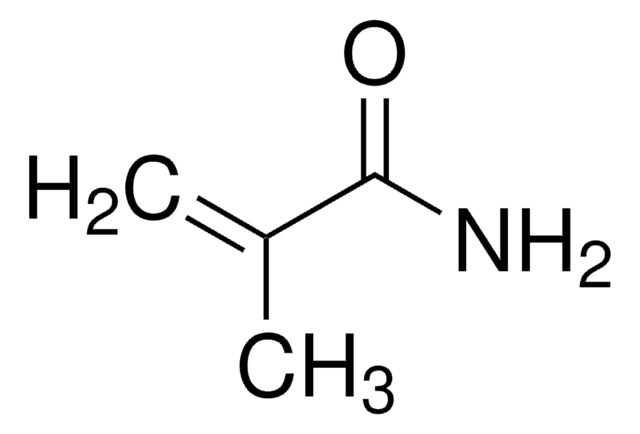04704
Glycidamide
analytical standard
Synonym(s):
2,3-Epoxypropanamide, Oxiranecarboxamide
About This Item
Recommended Products
grade
analytical standard
Quality Level
Assay
≥95% (qNMR)
shelf life
limited shelf life, expiry date on the label
application(s)
environmental
format
neat
storage temp.
2-8°C
SMILES string
NC(=O)C1CO1
InChI
1S/C3H5NO2/c4-3(5)2-1-6-2/h2H,1H2,(H2,4,5)
InChI key
FMAZQSYXRGRESX-UHFFFAOYSA-N
Related Categories
General description
Application
Other Notes
Signal Word
Danger
Hazard Statements
Precautionary Statements
Hazard Classifications
Acute Tox. 4 Oral - Carc. 1B - Eye Irrit. 2 - Skin Irrit. 2 - Skin Sens. 1 - STOT SE 3
Target Organs
Respiratory system
Storage Class Code
6.1C - Combustible acute toxic Cat.3 / toxic compounds or compounds which causing chronic effects
WGK
WGK 3
Flash Point(F)
Not applicable
Flash Point(C)
Not applicable
Personal Protective Equipment
Choose from one of the most recent versions:
Already Own This Product?
Find documentation for the products that you have recently purchased in the Document Library.
Customers Also Viewed
Our team of scientists has experience in all areas of research including Life Science, Material Science, Chemical Synthesis, Chromatography, Analytical and many others.
Contact Technical Service










